The Legend of Zelda: Tears of the Kingdom’s Plot Sucks
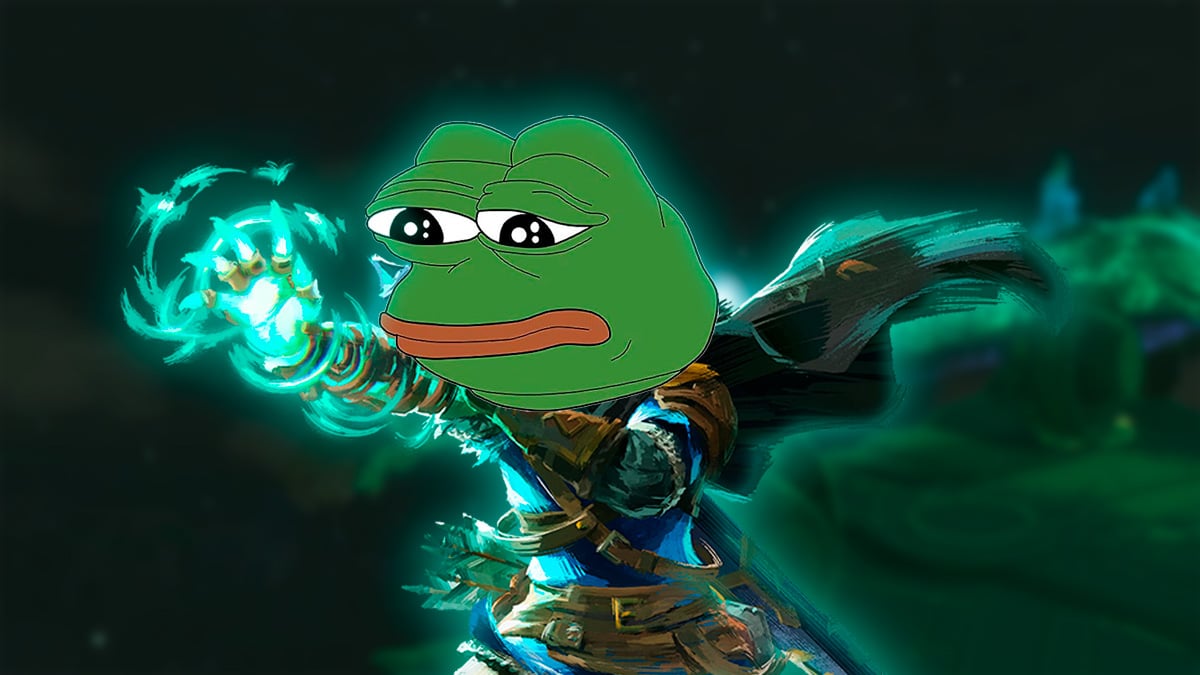
Table of Contents
- The Legend of Zelda: Tears of the Kingdom
- Weak and Inconsistent Narrative
- The Franchise’s Lore and Timeline
- Lack of meaningful stakes or consequences
- Final Thoughts
Despite being one of the most brilliant gameplay-wise titles in the industry, The Legend of Zelda: Tears of the Kingdom’s plot sucks. An inconsistent and weak narrative. A messed up lore. The lack of character development. The absence of significant consequences. And this is just the tip of the iceberg.
Before you read on, please keep in mind that the following article contains numerous spoilers. After all, we are delving into an in-depth discussion of the game’s plot, including all of the memories, the secret ending, and what’s not. So, proceed at your own risk.
This is a super lengthy article, as there are too many issues with the plot of TotK. So, buckle up. And thank you in advance if you manage to read it until the end.
The Legend of Zelda: Tears of the Kingdom

The Legend of Zelda: Tears of the Kingdom (TotK) was one of the most anticipated games of all time. From the moment Nintendo unveiled its development, the title had kept its fans worldwide on the edge of their seats. This level of anticipation propelled TotK to win The Game Awards’ Most Anticipated Game for two years in a row. Then, on May 12, 2023, players’ excitement reached its peak, bursting into immense joy and happiness as the game was finally launched.
TotK blew up the whole gaming industry with its unlimited potential. The game earned top marks in various aspects, gaining perfect scores on most fronts, and sold over 10 million copies just three days after it first hit the market. And, of course, it has been receiving an outpouring of praise from fans and critics alike. Even now, its heat has yet to dwindle.
However, for fans who are genuinely engrossed in Zelda’s rich lore and captivating storytelling, Tears of the Kingdom came as a jarring disappointment. Its storyline falls drastically short of expectations, calling up conflicts with previous titles that threaten to retcon the whole franchise. Thus, leaving players perplexed about Nintendo’s creative choices.
Weak and Inconsistent Narrative
Main Quest’s Ctrl C, Ctrl V Cutscenes

The sages’ cutscenes in TotK’s main quest really make one wonder if Nintendo was that short on time trying to push out BotW’s sequel. Unlike its predecessor, where each champion’s story evokes strong nostalgia and emotions and leaves players weeping for their cruel fates, TotK cutscenes feel repetitive and uninspired. And they are practically a copy-and-paste version of one another.
Every ancient sage essentially repeats the same thing. They are the new sage’s ancestors. They were in a fight against Ganondorf and lost. Rauru sealed the Demon King. Later on, the Sage of Time approached them, asking them to assist Link on his quest. It’s only until Mineru’s cutscene that we catch a bit more of the main narrative. But even then, it’s not enough.
The cutscenes of the main quest fail to fulfill their purpose. They lack the necessary information and emotional depth. Nintendo seems to rely heavily on the fact that the companions accompanying players are familiar faces from BotW. As a result, they neglect to delve deeper into the past sages. It’s exactly because of this approach that leaves the story feeling so hollow. Many players are unable to empathize with the sages or get a deep understanding of their struggles. Who are they? We don’t know. What’s their story? We have no idea. Why should we sympathize with them? We don’t have a reason to. They are just models with a voice and a mask. And it’s just sad.
Some may say that “you need to complete the Dragon’s Tears quest to fully understand what TotK is about.” But honestly, almost an hour of additional cutscenes doesn’t really impress in terms of storytelling or explaining anything. They only raise more questions. And we will delve into this later in this article because TotK’s story really messes up BotW and the franchise as a whole.
Constant Repeat of Key Information

Throughout TotK, the flashbacks keep repeating the same information over and over again. Yes, we know that Rauru has the blood of God and the power of Light. Yes, we know that Sonia has the Time power. Yes, we know that the Master Sword can restore itself if bathed in sacred power long enough. And yes, we know that once turns into a dragon, Zelda will lose herself and won’t be able to return to her human form.
It makes sense that Nintendo wants us to understand how much Zelda sacrifices through her draconification to restore the Master Sword. However, the constant repeating of these details really hampers the narrative. Thus, resulting in a sense of monotony and diminished engagement. The problem gets worse when the information provided by the flashbacks contradicts the world settings in BotW and TotK’s main story.
Contradicting Information and Plot Holes
The narrative suffers from a notable lack of logical consistency.
Mineru’s Warning about Zelda’s Draconification

One prominent instance is when Mineru says that once an individual has undergone the transformation into a dragon, there is no possible means of undoing this metamorphosis. However, not one, but two deviations occur later as TotK reaches its climax.
The first one happens when Zelda comes to Link’s aid while in her dragon form. It starkly contradicts what Mineru says:
“To become an immortal dragon is to lose oneself.”
— Mineru
She also mentions that by doing so, Zelda will have to sacrifice her heart and mind. She has to “sacrifice what makes you ‘you.’” Yet, dragon-Zelda still rushes to Link’s side when he battles against Ganondorf.
Some argue her love for Link and the kingdom of Hyrule drives this instinct. But her transformation should have negated such actions. After all, she can’t have that instinct anymore. She has already lost her heart and mind. She has already lost everything that makes her Zelda. She has lost everything that makes her worry about Link’s being and the state of Hyrule. She shouldn’t have feelings or a sense of duty anymore. Yet, the plot hole is there.
The second one happens after Ganondorf is defeated. During the talk with Mineru’s spirit, she says that there is a theory that Rauru and Sonia channel their energy through Link/Rauru’s arm. They revert time back to when Zelda has yet to swallow the tear, and Link has yet to have his arm infected. Thus, resulting in the magical restoration of Zelda to her original human form. And, of course, Link’s arm is completely cured. Well, isn’t that convenient? All without any side effects or consequences. And talking about consequences in TotK, there aren’t any. And we will get into that soon.
When Sonia and Zelda Exposed Ganondorf’s Deceit

Upon recognizing Ganondorf’s ruse involving a fake Zelda to trick Sonia and seize her stone, wouldn’t it be logical for Sonia and Zelda to inform Rauru? Why confront Ganondorf alone instead of involving the King of Hyrule or some guards as a precaution? It truly raises questions about their decision-making. Furthermore, how does Ganondorf infiltrate the castle undetected during those hours to appear behind Sonia and donut her? Is the security in Hyrule castle, where a king and a queen live, that awful and unprofessional?
Well, all these questions will remain a mystery, because there isn’t any decent explanation for them at all. And this is just one of the many instances where nothing makes sense.
The Characters
Ganondorf

Ganondorf’s appearance and initial introduction held the promise of a formidable Demon King. Before really seeing him in action, his presence exuded power and menace. Yet, as we get to see him as the character Nintendo built him to be, all that has left is only disappointment.
Holding the intimidating title of “The Demon King,” yet, his actions hardly live up to the reputation. Despite wielding an imposing katana that might lead one to anticipate fierce battles, his engagements are limited to posing, summoning phantoms, minions, and riding horses. Regrettably, his endeavors fail to instill fear or a sense of impending peril in the hearts of players.
The depth of Ganondorf’s motivations remains lacking. Throughout TotK, he keeps saying that he wants to rule Hyrule, but why? He says that the light is blindingly annoying, and he wants the darkness. But again, why? Why does he hate the light that much? Why do the monsters listen to him? How is he able to summon them? And besides, given his unique abilities to conjure blood-lusting monsters, shouldn’t he be more well-known than what’s depicted in TotK? Shouldn’t a wise king like Rauru be aware of his presence and prepare some countermeasures?
And the most important query is: Why is he evil?
Next, after acquiring the Tear, Ganondorf ascends to a god-like level of power. His transformation is in stark contrast to the other sages who exhibited minimal changes. He can even take on Rauru at the same time as the rest of the sages, who also possess the same kind of stone he has. Why? We will never know. These questions are never answered in the game. All we are given are: Ganondorf is bad, Zelda and Link are good. End of story.
Zelda

Zelda’s decision to keep quiet about the carcass under Hyrule Castle raises questions. After all, when she first encounters Ganondorf, she has already appeared visibly uneasy.
“I believe that man’s heart holds many dark ambitions. Just his name… Even that… It gives me pause.”
— Zelda
Yet, it’s not until Sonia’s passing that she finally decides to say something about the mysterious man trapped beneath Hyrule Castle.
If she had promptly informed Rauru about the unidentified body beneath Hyrule Castle and what she had seen on the mural back in the present time, it’s possible that he might not have chosen to keep Ganondorf close. He might have avoided the error in his judgment of “There’s nothing to worry about.” And Sonia might still be alive.
Considering her role as the leader of the modern Hyrule, one might anticipate her being more cautious with her choice of words during critical moments. After all, she is always built as an intelligent princess, a wise ruler, and a caring character. Yet, before the showdown with the Demon King, she told Rauru:
“We won’t be able to defeat him. No matter how strong we think we are, he’ll survive.”
— Zelda
What a great pep talk for an imminent life-and-death battle, isn’t it?
Equally perplexing is her belief that Link wouldn’t hold his ground against Ganondorf. It’s like TotK Zelda is a completely different person from the one in BotW. In the previous title, even when she can’t master the power of the Goddess, she still finds other ways to save Hyrule by researching Sheikah’s technology. When all fails, she takes on the burden of sealing up Calamity Ganon for 100 years, all by herself, without complaints. But in TotK, Zelda gives off the vibe of a teenage girl who has never seen war. She is afraid of everything. She doesn’t have faith in her allies. And she sinks the morale of all those around her.
Link

In BotW, Link gives off the vibe of a silent hero burdened by overwhelming responsibilities. In TotK, he exaggerates this persona a bit too much. Throughout his journey across the four regions, Link must have been aware of the imposter Zelda. After all, isn’t she the closest person to him? Shouldn’t he know that the true Zelda will never do such things? Yet, he says nothing.
Nintendo had the opportunity to create a scenario where the entire world has turned its back on Zelda, thinking of her as the bad guy who causes their misery. And yet, Link still chooses to stand by her side, trusting her to be the good person she is. Such details would really deepen their bonds.
But no. Link has to stay silent.
Moving on, Link possesses the knowledge of the Zonai’s secret and the unique ability to operate their technology through his arm. He knows that without Rauru’s arm, nothing Zonai-related can operate. However, he chooses to keep his mouth shut. All the while enjoying watching the Sheikah researchers and Zonai survey team struggle with their research leading to nowhere.
Mineru

Mineru’s ability holds little practical value. Alright, so she can separate her soul from her body. But so can the other sages. They manifest “avatars” to accompany Link on his journey. So what exactly makes Mineru’s power special?
The pursuit of constructing a body for Mineru is questionable. She claims that this is the sole means for her to engage in face-to-face conversations with Link. However, for conveying crucial information, the need for physical presence appears unnecessary. Especially when it requires so much time and effort. They are in an intense situation, and they don’t have much time until Ganondorf’s full rise to power.
In such a case, one might expect her to prioritize delivering essential insights swiftly, irrespective of the medium. And if that’s not an option, then she can always appear before him in spirit form. As evidenced in the completion of the Dragon’s Tears quest, the true ending showcases Mineru as a spirit.

She can speak to them all just fine without a body. So, that means this form of communication could have worked. Link could have saved his time and proceeded on his journey instead. Overall, this quest appears primarily designed for us players to get the mecha more than being an essential narrative element.
Truth be told, the introduction of the fifth sage in TotK would have been a lot more captivating if it had aligned with the depiction of the ancient Hero on the mural. But, well, another opportunity was missed because creating a brand-new and hollow character is a lot easier than sticking to what has been laid out in BotW.
Other NPCs
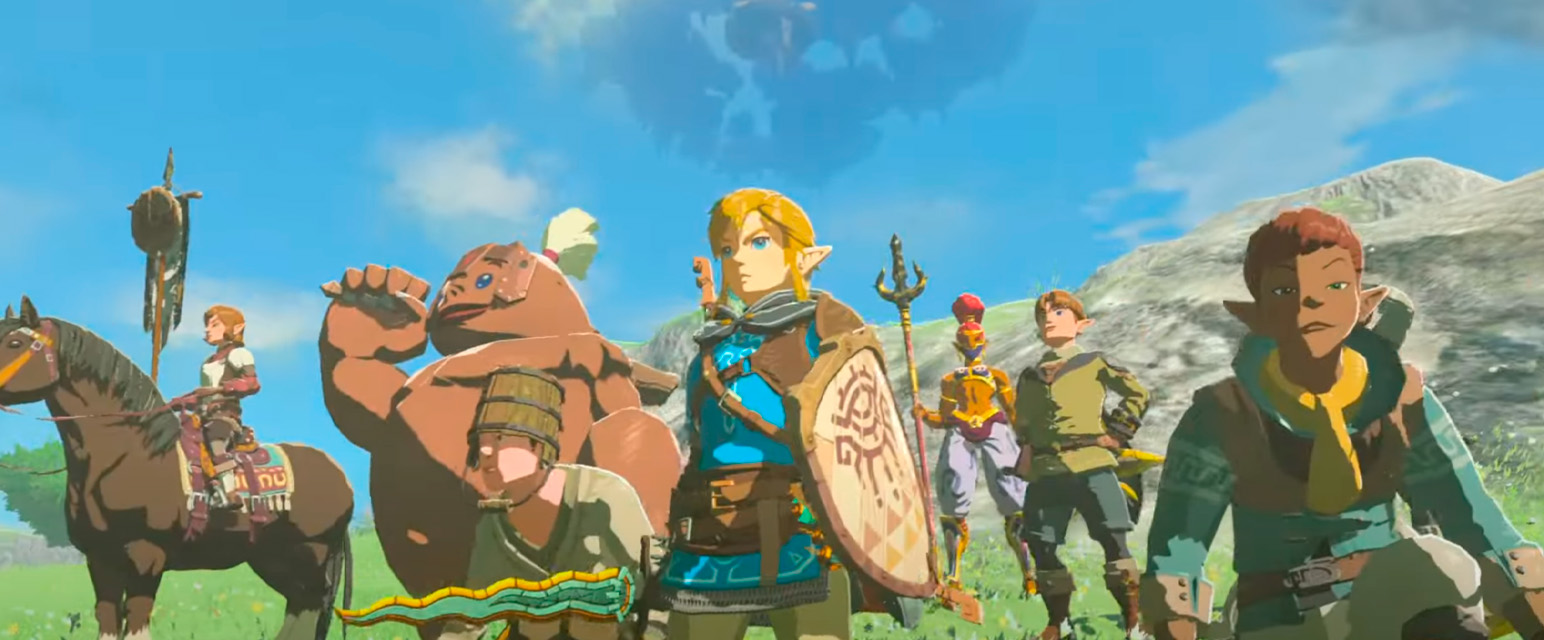
Oh, the NPCs. It’s like Nintendo only puts them there only to fill up the empty world. For instance, consider Paya’s role in the game. Why should we support her to be the new chief when she doesn’t really do anything but stare at the Ring Ruins for the whole game?
Similarly, Yona, a Zora with divine qualities, arrives abruptly in the story as both Sidon’s childhood friend and his fiancée. The lack of a detailed backstory or character development for Yona may leave players feeling disconnected from her character, as she seems to exist solely to support Sidon’s narrative.
Furthermore, the behavior of the Zora NPCs in relation to Sidon’s water purification efforts raises questions. When Sidon departs from Mipha Court to join Link in conquering the dungeon, the Zoras are shown to be capable of purifying water on their own. This renders Sidon’s days of solitary and exhaustive efforts unnecessary. After all, they could have switched shifts with him or devised a plan so that no Zora should have to exert themselves as much. And to add, Muzu hates us again! As if he’s completely forgotten what happened in BotW.
Rather than enriching the game’s world and storytelling, these NPCs sometimes feel underdeveloped and poorly designed.
However, it’s worth noting that the game does shine in other areas, such as Tulin’s reaction when he sees Link. Or the reception Link receives in Gerudo Town. After all, how cool is that to be the only male allowed to walk among the proud Gerudo?
The BotW Champions Are Forgotten

The absence of any reference to the BotW champions is painfully notable. For example, Mipha.
No one mentions Mipha. Even the elders hardly speak about her anymore, despite the immense love they show back in BotW. All they talk about in TotK is Link and Sidon. It’s understandable that Nintendo wants to boost the player’s sense of importance and pride. Perhaps they also want to show that the Zoras have moved on from the loss of one of their most cherished member. However, this emphasis comes at the cost of diminishing the space dedicated to a significant and beloved figure of Zora’s Domain.
Certainly, there exists Mipha Court, designed to commemorate her memory. But her statue has been displaced from its once-prominent position and relocated to Shatterback Point, removed from the gaze of most visitors. This decision begs the question: why were her statue and the new one of Link and Sidon can’t be positioned together in a more central and prominent area? Wouldn’t it be more fitting to grant Mipha, who is also a heroic figure within the Zora’s Domain, a more visible presence alongside her contemporaries? After all, her legacy has been a part of Zora’s history, marked by a century of mourning. Yet, perplexingly, her presence has been abruptly relegated, and the memories about her seemingly consigned to oblivion.

In the true ending, Zelda reminisces about standing alongside the past sages, and now she’s standing among the new ones. It’s… sad. It’s not due to any deliberate intent by Nintendo, nor prompted by the fleeting glimpse of the enigmatic ancient sages. No. Because as stated above, other than Mineru, the ancient sages have not a name, a face, or any kind of personality or backstory to evoke players’ emotions. Rather, it’s sad because Zelda has completely forgotten the BotW champions who valiantly gave their lives in the decisive clash against Calamity Ganon.
The emotional impact of the scene could have been greatly enhanced had Zelda’s recollections encompassed not only the past sages, but also included a heartfelt remembrance of the fallen champions, as well as acknowledging the contributions of the new sages who aid Link against Ganondorf.
Oh, and the Divine Beasts, as well as the Guardians, have all disappeared without a trace. Understandably Nintendo is going to blame this on the Upheaval. But shouldn’t there be at least some signs of them? They are gigantic, walking machines. It’s impossible for them to completely vanish from existence just like that.
Tears of the Kingdom Is Basically a Mash-up of Every Zelda up until Now
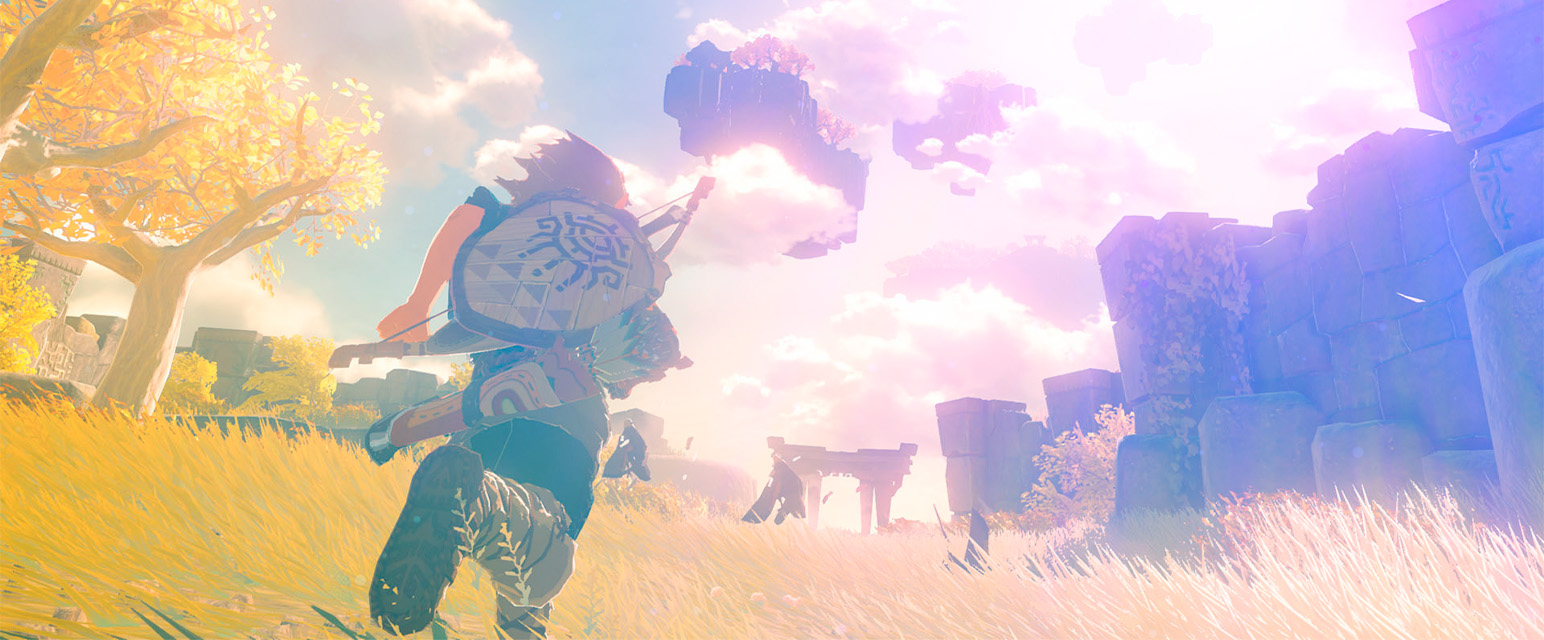
Yes, you didn’t read it wrong. There are noticeable similarities between the narratives of TotK with the most prominent features of other Zelda games. First stop, Breath of the Wild:
- Both games involve Zelda being accompanied by a group of powerful allies. In BotW, it’s the champions. In TotK, it’s the sages of an era long past.
- They have to face a formidable evil: Calamity Ganon in BotW and Ganondorf in TotK. Ultimately, they have to resort to sealing away the antagonist in hopes that Link will rise to the challenge in the future.
- In both games, the champions/sages play an important role in aiding Link on his adventures.
- In both games, when it’s all said and done, Zelda is granted her long-awaited liberation from her duty.
- And in both games, Link wakes up in an unknown place. He’s led through the tutorial by a dead Hyrule king. And he’s tasked with finding the long-lost memories in order to fully understand what’s happening.
Next, descending from the Sky Islands? Time loop? Zelda seals herself up for thousands of years for some noble reason? There you have Skyward Sword.
Ganondorf kneeling scene: Ocarina of Time. However, this may be an intentional Easter Egg coming from Nintendo.
Zelda puppet with its strings held by Ganondorf? Hello, Twilight Princess.
The Franchise’s Lore and Timeline
Nintendo appears to have retconned the whole lore and timeline of The Legend of Zelda without saying a word to its fans. Let’s start with the fundamental question that underpins the entire franchise.
Where is Hylia

Zelda’s ancestry has always been traced back to Hylia, the Goddess of Light and Time, ever since the early days of the franchise. In BotW, Impa literally confirms Zelda’s bloodline:
“This evil has been turned back time and time again by a warrior wielding the soul of a Hero, and a princess who carries the blood of the Goddess.”
— Impa
We all know said princess must be the Zelda who came before BotW Zelda. She doesn’t mention the Goddess’s name. But each and every Zelda lore lover immediately knows she’s talking about Hylia. Yet, in TotK, the one who carries the blood of the gods is Rauru, and he’s the one with the Light power. And Sonia, according to Ganondorf, is just a Hyrulean woman who can manipulate Time. If he was aware of Hylia, Ganondorf wouldn’t have addressed someone with a power akin to the Goddess in such a manner, would he?
“And now you rule as king and have taken a Hyrulean woman as your wife.”
— Ganondorf
And to add, back in BotW we see Zelda going from spring to spring, praying to the Goddess to unlock her power. But in TotK, she inherits her power from Rauru and Sonia. So what exactly is the reason that prompts her to pray to the Goddess in the previous title then?
Anyway, the only instance where Hylia is somewhat mentioned is in the memory when Link and Zelda come to visit the Deku Tree and receive his blade.
“The potential of this fabled blade may well be limitless. Truly the work of a goddess.”
— The Deku Tree
But that’s it. There is nothing Hylia-related anymore. Is the sacred Goddess booted out of The Legend of Zelda’s lore? We don’t know. Nintendo never says a thing.
The Triforce

Being the most powerful artifact in Zelda’s universe, yet, the Triforce is not once mentioned. Despite its clear appearance in BotW and its significance in Hyrule’s royal crest, it seems no one even cares to bat an eyelid about its existence. Notably, Zelda used the Triforce’s power to defeat Calamity Ganon. Yet, there is no explanation for it in TotK. The Triforce is completely forgotten, and we have magical stones instead.
The Founding of Hyrule

Suddenly, the first king and queen of Hyrule are two figures who we have never heard about in any other Zelda game before. Thus, erasing the whole events in Skyward Sword and before that.
According to the lore, Hylia chose the first Hero to defend her people. Said champion sacrificed his life so Hylia could take the people to Skyloft. From then, we have the events in Skyward Sword. At the end of SS, we see that Link and Zelda descend to the ground, thus, forming Hyrule. So shouldn’t SS Zelda be the first queen? And since SS is one of the games where Link and Zelda are shown with romantic interest toward each other, doesn’t it mean SS Link might be the first king of Hyrule too? If so, then why in TotK, the first king is Rauru, and the first queen is Sonia?
The Presence of Ganondorf
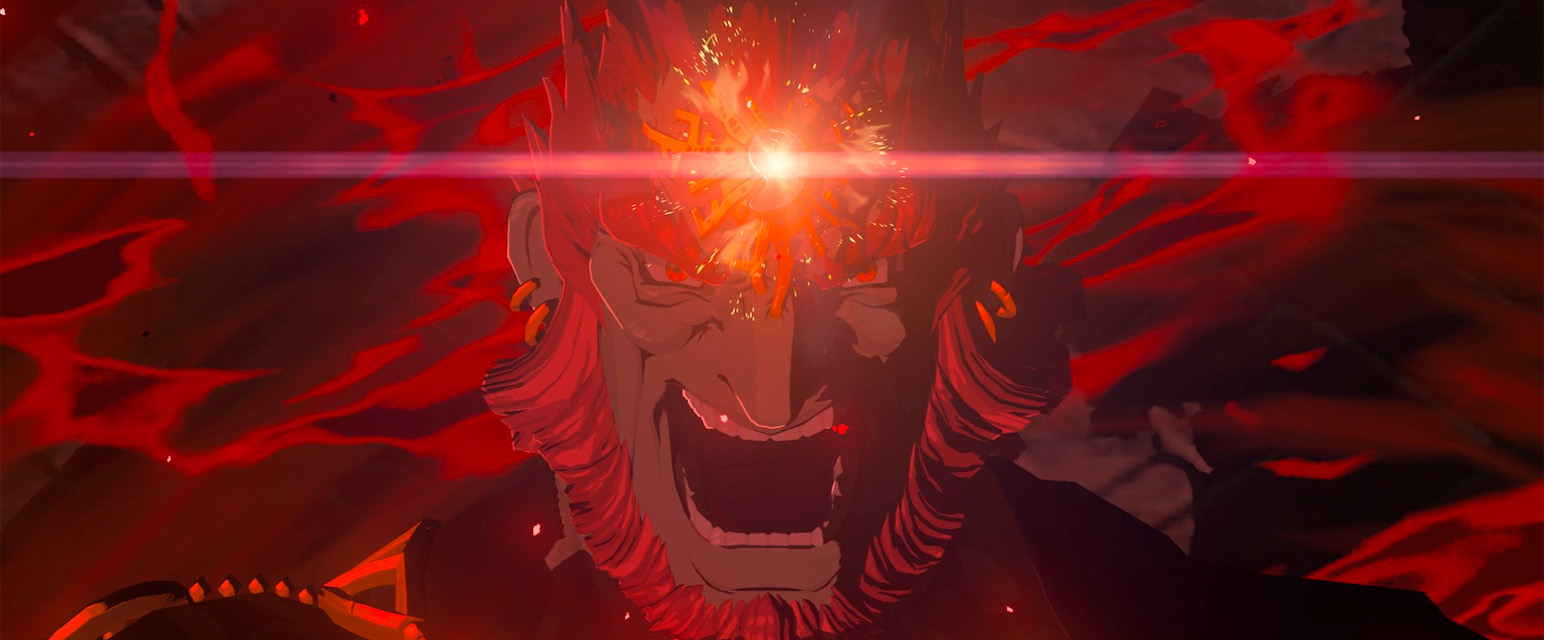
Let’s say we agree to put SS and its events aside for a moment. So, in TotK, it’s clear that Ganondorf is sealed under Hyrule Castle during the reign of Rauru and Sonia. It means he has been trapped there since the beginning of the timeline. Thus, a question emerges. Who, then, were the Ganondorfs in games such as Ocarina of Time, Twilight Princess, and Wind Waker?
Misleading Tease of Skyward Sword and Twilight Princess
Nintendo released Skyward Sword on the Switch right before the arrival of Tears of the Kingdom. They also created TotK with similar settings to Skyward Sword. Thus, prompting speculations about how these two titles could have related to each other. Yet, when TotK is out and about, it’s clear that there’s nothing related to Skyward Sword at all. Not even a little tiny hint to Skyloft.
Listen to this soundtrack. At 0:40, the main theme of Twilight Princess is playing.
So, does that mean TotK will have something to do with Twilight Princess? Well, no. No Mirror of Twilight, no Twilit, no Midna. The only thing that somewhat resembles Zant’s garment is the Depths armor sets. But that’s it.
Players were given false hope to hype up for TotK. This hope, however, was ultimately dashed as the game unveiled itself devoid of any substantial ties to its predecessors. After all, even the champions in BotW have also faded into oblivion.
Lack of meaningful stakes or consequences
The events in TotK have no consequences. The ending is nothing less than a Mary Sue story. Everyone is healed up. Everything is healed up. Everywhere are ponies and rainbows.
The Iconic Bittersweet Endings

The thing about Zelda games is that there is always a bittersweet element at the end. For example, Link realizes all his adventures and the people he meets in Link’s Awakening are nothing more than just a dream. Or in OoT, Navi leaves Link because she has fulfilled her purpose of aiding him on his journey. And once a fairy has fulfilled its purpose, then it can no longer exist. Or the farewell with Midna in Twilight Princess, never to be met again. Or in Majora’s Mask, those who lost their lives can never return, no matter how much the Deku butler weeps, or how much Lulu longs for the father of her children. So on, and so forth.
What Could Have Been

Imagine if there are also consequences to what has happened in TotK. For example, King Dorephan’s demise prompts Sidon to inherit his father’s role. Link’s permanent arm loss necessitates cybernetic augmentation. Alternatively, Zelda can never reverse back to her human form. Yet, Link still chooses to stay by her side, forever being her companion. Or, with Zelda unable to revert to her human form, she had to bid her farewell to Link. Zelda could express her unwavering commitment to protecting Hyrule, its people, and her Hero. This approach would have delved deeper into her sacrifice, her feelings towards Link, and highlighted her role as the descendant of a Goddess.
But instead, Nintendo has chosen the path of a perfect ending. Zelda’s lines about how she has been asleep for thousands of years and doesn’t remember anything while in her dragon form really weaken the weight of her sacrifice. Thus, making it seem like it’s all just a mere nap to her. And when she wakes up, everything is fine and has been sorted out.

Nintendo missed an opportunity to deepen the character of Zelda and underscore the consequence of draconification. They could have allowed her to witness events of thousands of years unfold through her dragon eyes. All the while, she always experiences a constant sense of sorrow without comprehending its origin due to her memory loss and transformation. Her liberation by Rauru, Sonia, and Link would then trigger the realization that her sorrow stemmed from sacrificing her identity, emotions, and essence to become a mindless entity. The sorrow of having no other option to save her beloved kingdom. And the prospect of never being a human again to be with Link.
After all, Nintendo did say that TotK would embody a darker tone than other Zelda games. And so, many had hoped to see another title with eerie settings as impactful as Majora’s Mask, or as heart-wrenching as BotW. But TotK is nowhere near its predecessor, let alone stepping up its game to stand beside the Mask Salesman.
Nintendo does attempt to evoke strong emotions through the farewell scene with Mineru. However, it falls short. The issue lies in Mineru’s underdeveloped presence within TotK. She fails to establish a significant impact on the players. And so, once she departs, it doesn’t feel like the player loses anything. But rather, it’s something that’s bound to happen.
Final Thoughts

There is still a lot more to discuss if we go into deeper details. TotK really feels like an underwhelming story that falls short of its predecessors. Of course, it also has its good moments. For instance, the sequence of Link retrieving the Master Sword from dragon-Zelda is easily one of the most epic scenes of the franchise to date. However, the way Nintendo handles its plot, in general, raises questions about the direction that The Legend of Zelda is taking. Is it getting a reboot? Is it retconned? We have yet to have any confirmation. We only know Nintendo did state that they wanted to focus on the future instead of paying attention to the past Zelda games.
If the intention was to discard the existing timeline, at the very least, they should’ve done a better job with the story. Either unify TotK in a cleaner, more sensible way with other Zelda games, or make it an actually good story. While direct references between Zelda games are rare, they usually avoid outright conflicts, especially when it is Hylia-related, unlike the current situation.
And we have finally reached the end. Thank you so much for your perseverance. Don’t hesitate to share what you think about TotK in the comments down below. We can’t wait to see the situation from your point of view.
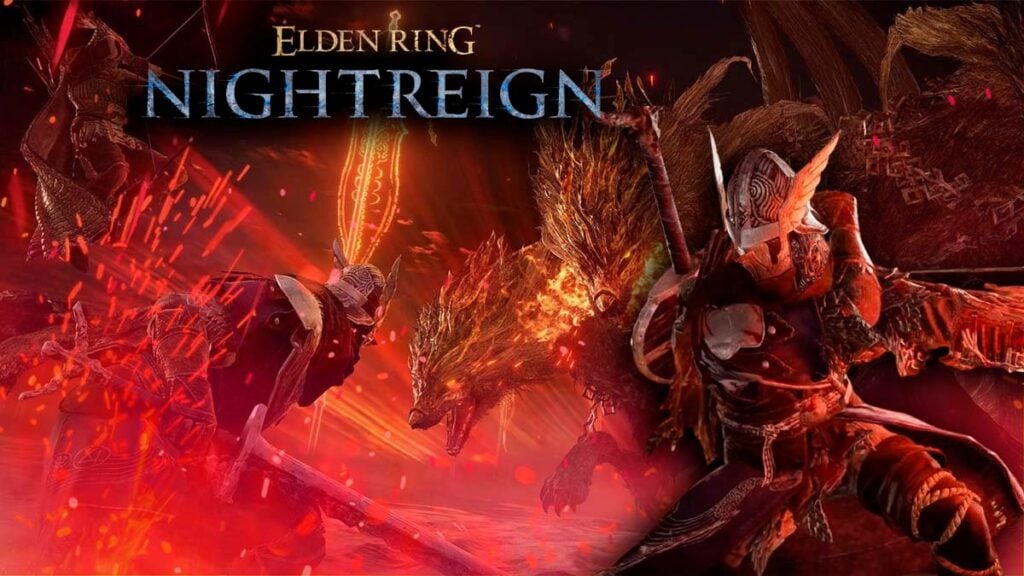
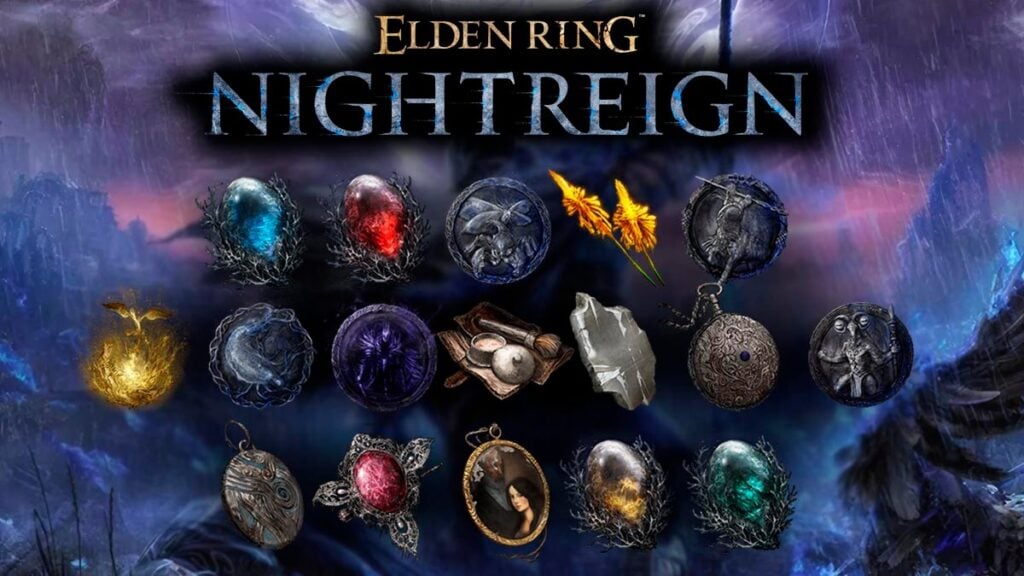
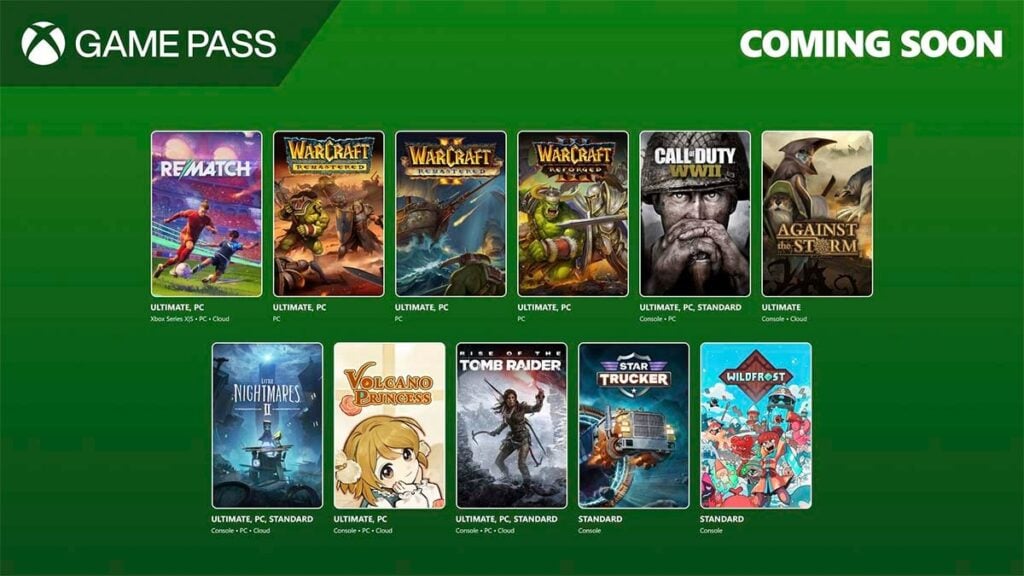

Comments
Yeah Tears of the Kingdom was the last straw that made me say goodbye to the Zelda series. This game had so much potential to be the greatest ever that ties up the whole Zelda story into a neat little bowtie. It could have wrapped up the stories of every previous game and it would have been glorious to see. But it just turned into a game with all filler and no real substance. You also should mention how Demise in Skyward Sword was shown as the root of all evil and it is his hatred which is what makes Ganondorf evil. And it is Demise’s curse that keeps link, Zelda, and Ganondorf forever doomed to reincarnate. It would have been awesome to see TotK really focus on that, maybe have Link and Zelda try to break the curse in some way. But nope, absolutely zero mention of Demise.
100% agree :c And thanks for reminding me about Demise’s curse! I actually thought of it as well, but TotK has so many questionable things to rant about that when I finished writing this review, I forgot to include it xD I’ll make sure to add it in when I get a chance. Thank you for sharing your thoughts! 😊